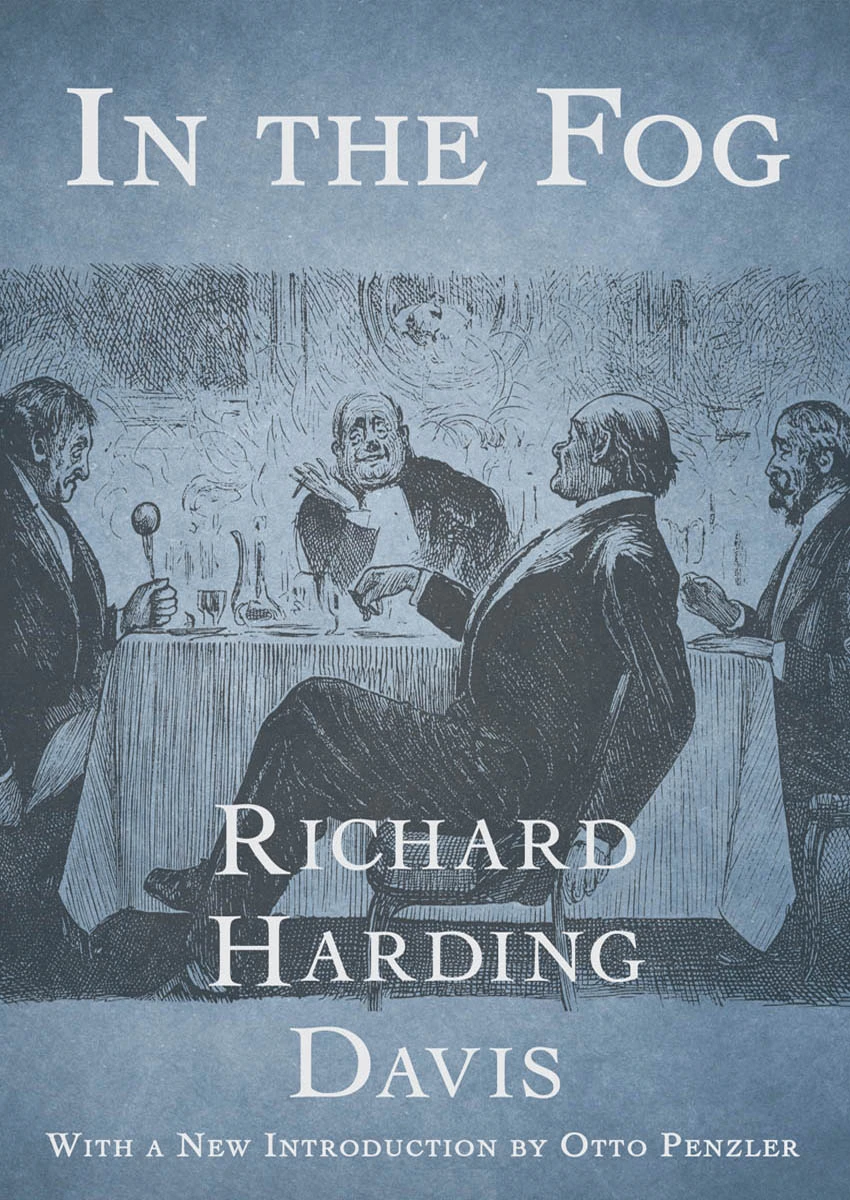In the Fog


EARLY BIRD BOOKS
FRESH EBOOK DEALS, DELIVERED DAILY
LOVE TO READ?
LOVE GREAT SALES?
GET FANTASTIC DEALS ON BESTSELLING EBOOKS
DELIVERED TO YOUR INBOX EVERY DAY!


The Web’s Creepiest Newsletter
Delivered to Your Inbox
Get chilling stories of
true crime, mystery, horror,
and the paranormal,
twice a week.


Sign up for our
newsletter to discover
more ebooks worth
reading.

In the Fog
Richard Harding Davis

BookishMall.com.COM

INTRODUCTION
The fearless war correspondent par excellence Richard Harding Davis (1864–1916) was the most successful reporter of his time, working for the New York Evening Sun, the New York Times, New York Herald, Harper’s Weekly, and Scribner’s Magazine, among others. He was the first journalist to cover the Spanish-American War and, as a close friend of Theodore Roosevelt, helped create the image and legend of the future president as the leading light of the Rough Riders. He was an adventurer as well as a journalist, often going to the front lines to cover stories while wearing pistols and wielding other weapons.
Very popular with other writers and journalists, the handsome, square-jawed Davis is reputed to have served as the model for the famous American illustrator Charles Dana Gibson’s “Gibson Man,” the male equivalent of the “Gibson Girl” as the personification of American beauty. He was prime catalyst for American men to adopt the clean-shaven look at the turn of the twentieth century.
A prolific writer, Davis wrote more than thirty-five works of fiction, biography, history, and memoir. His best-known book was Soldier of Fortune (1897), which he later turned into a successful play. In the mystery genre, his most widely read book is the often-reprinted In the Fog (1901), comprised of three connected short stories in the style of Robert Louis Stevenson’s New Arabian Nights (1882); it contains two surprise endings.
For modern readers, Davis’s most famous story is probably “Gallegher,” which is as much a newspaper story as it is a mystery, and has the charm of depicting life in journalism when it was a romantic and exciting profession, requiring a written story to be literally rushed to the office for it to be set in type and printed against stringent deadlines. It served as the basis for Gallegher, a television series on NBC’s Walt Disney’s Wonderful World of Color that starred Roger Mobley, Edmond O’Brien, and Harvey Korman, and ran as twelve one-hour episodes from January 1965 to March 1968.
—Otto Penzler
2016
CHAPTER I
THE GRILL IS THE CLUB most difficult of access in the world. To be placed on its rolls distinguishes the new member as greatly as though he had received a vacant Garter or had been caricatured in “Vanity Fair.”
Men who belong to the Grill Club never mention that fact. If you were to ask one of them which clubs he frequents, he will name all save that particular one. He is afraid if he told you he belonged to the Grill, that it would sound like boasting.
The Grill Club dates back to the days when Shakespeare’s Theatre stood on the present site of the “Times” office. It has a golden Grill which Charles the Second presented to the Club, and the original manuscript of “Tom and Jerry in London,” which was bequeathed to it by Pierce Egan himself. The members, when they write letters at the Club, still use sand to blot the ink.
The Grill enjoys the distinction of having blackballed, without political prejudice, a Prime Minister of each party. At the same sitting at which one of these fell, it elected, on account of his brogue and his bulls, Quiller, Q. C., who was then a penniless barrister.
When Paul Preval, the French artist who came to London by royal command to paint a portrait of the Prince of Wales, was made an honorary member—only foreigners may be honorary members—he said, as he signed his first wine card, “I would rather see my name on that, than on a picture in the Louvre.”
At which Quiller remarked, “That is a devil of a compliment, because the only men who can read their names in the Louvre to-day have been dead fifty years.”
On the night after the great fog of 1897 there were five members in the Club, four of them busy with supper and one reading in front of the fireplace. There is only one room to the Club, and one long table. At the far end of the room the fire of the grill glows red, and, when the fat falls, blazes into flame, and at the other there is a broad bow window of diamond panes, which looks down upon the street. The four men at the table were strangers to each other, but as they picked at the grilled bones, and sipped their Scotch and soda, they conversed with such charming animation that a visitor to the Club, which does not tolerate visitors, would have counted them as friends of long acquaintance, certainly not as Englishmen who had met for the first time, and without the form of an introduction. But it is the etiquette and tradition of the Grill, that whoever enters it must speak with whomever he finds there. It is to enforce this rule that there is but one long table, and whether there are twenty men at it or two, the waiters, supporting the rule, will place them side by side.
For this reason the four strangers at supper were seated together, with the candles grouped about them, and the long length of the table cutting a white path through the outer gloom.
“I repeat,” said the gentleman with the black pearl stud, “that the days for romantic adventure and deeds of foolish daring have passed, and that the fault lies with ourselves. Voyages to the pole I do not catalogue as adventures. That African explorer, young Chetney, who turned up yesterday after he was supposed to have died in Uganda, did nothing adventurous. He made maps and explored the sources of rivers. He was in constant danger, but the presence of danger does not constitute adventure. Were that so, the chemist who studies high explosives, or who investigates deadly poisons, passes through adventures daily. No, ‘adventures are for the adventurous.’ But one no longer ventures. The spirit of it has died of inertia. We are grown too practical, too just, above all, too sensible. In this room, for instance, members of this Club have, at the sword’s point, disputed the proper scanning of one of Pope’s couplets. Over so weighty a matter as spilled Burgundy on a gentleman’s cuff, ten men fought across this table, each with his rapier in one hand and a candle in the other. All ten were wounded.
1 comment